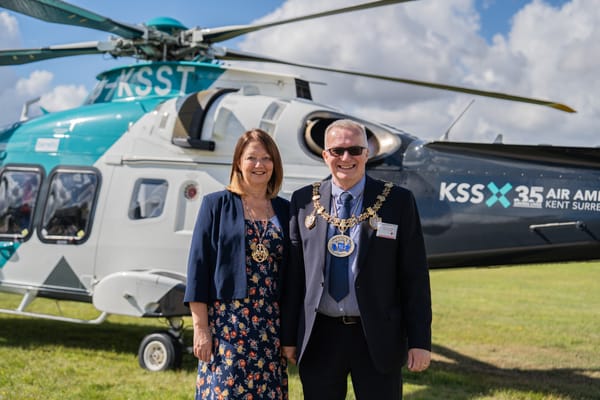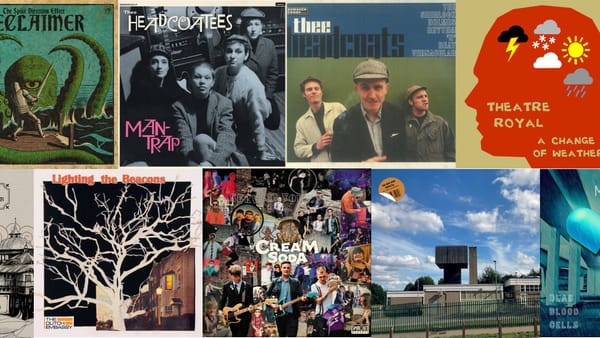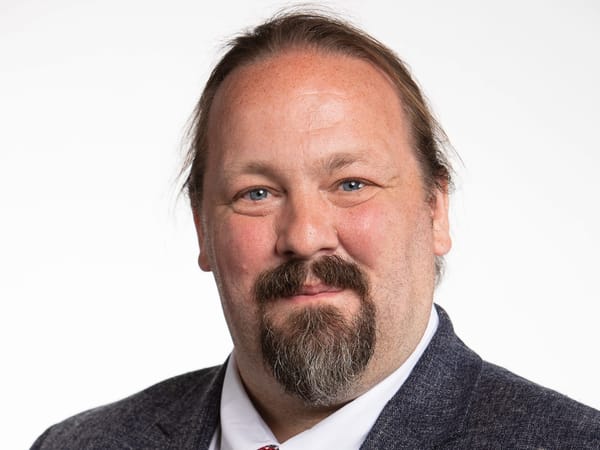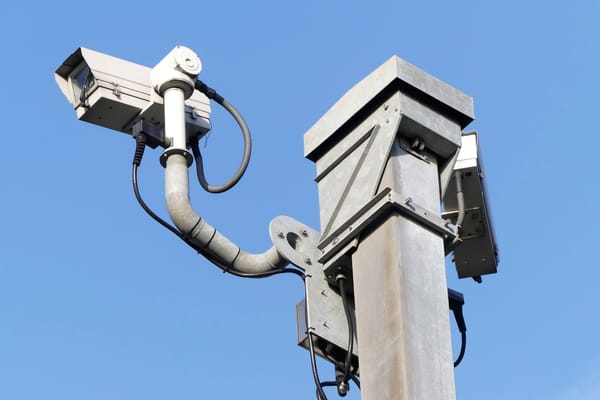Is Medway deaf to the needs of the hard of hearing community?
Can there really be 45,000 hard of hearing people in Medway?

Welcome to the latest part of our series of pieces looking at historical questions from council meetings that were never answered properly. Previous editions have examined alleyways, political assistants, and blue boards. This time, we are looking into the issues facing deaf people in Medway. We went all the way back to the beginning of online records. A time when the Medway administration was Conservative and they still allowed the public to ask supplementary questions. That mythical time was 5 December 2001.
The following piece has been put together with input from deaf and hard of hearing residents. Thank you for your help, any mistakes that follow are mine.

The original question was asked by Mrs Wood on behalf of Mr Graham Warren, president of Medway Deaf Club:
“Social services no longer has a social worker or support worker specifically working with deaf people. I am aware that the post of social worker has been advertised and there has been little, if any, response. I also understand that a weekly drop-in surgery (Wednesday mornings), with an interpreter present, has been set up at the Compass Centre. My understanding is that so far no deaf person has actually taken advantage of this. Have the deaf community been informed of this drop-in service? Is the Compass Centre accessible to all deaf people? What about the elderly deaf person or a carer who may find it extremely difficult to visit the Compass Centre? Are there any arrangements for home visits? Would the worker be aware of the needs and culture of deaf people? In the past it has been the specialist social worker/support worker for the deaf who was the link to other departments within the Council. With no such worker in post, it means that deaf people experience difficulties in accessing other departments. It is true to say that deaf awareness training has been provided to some Council departments, but shouldn’t this be provided to all departments, particularly front line staff? Ideally such training should be provided at least once a year, due to the turnover of Council staff?”
Now, in fairness there are a lot of questions there but Councillor Howard Doe, who at the time was 20 years into his 42 years and counting as a Medway councillor was Portfolio Holder for Health and Community Services, and responded as follows:
“There are two posts within health and community to work specifically with deaf and hearing impaired people, a social work and support work post. The social worker post has been vacant for over a year and advertised in specialist magazines on at least three occasions, although applications have been received and interviews undertaken it has not been possible to recruit. For these reasons negotiations have begun with the deaf services bureau run by Kent County Council social services directorate to see if agreement can be reached to purchase the service from them under a contractual arrangement. Information about the progress of these negotiations will be given to the deaf community as soon as possible. Temporary arrangements have been made to ensure that a BSL sign language interpreter is available at the Compass Centre on Wednesday mornings to provide communication support for the deaf services duty session. This service is primarily available to take referrals for the service but is currently relying on the support of the occupational therapist and if necessary care managers. Urgent referrals are currently passed onto other relevant teams and non-urgent cases are being held until new arrangements are made. All referrals related to equipment provision are receiving assessment from Hi Kent a specialist voluntary organisation with a base at Medway Maritime Hospital. The deaf community were informed by Keith French, our previous support worker, of these arrangements before he left. Deaf awareness training is promoted for all staff and available through the learning and development programme within the Council.”
As mentioned this was a golden era, and so Mr Warren asked one supplementary question:
“Our members actually live in a wide area. We are the only deaf centre though in Medway, but there are deaf people that come from all over the area, for example from Gravesend and Folkestone. They all come along to the Medway Centre here in Medway. If there are any problems that arise we would prefer it to be in that centre which is much easier for deaf people to access.”
Councillor Doe responded as follows:
“I think what we have to do here is to look at our customers’ aspirations and see if we can match the service. I do not know what is involved in that proposal but certainly we will have a look at it and we will try to get towards a service as quickly as possible which is really relevant to deaf people in Medway. I think it is a very unfortunate situation we are in at the moment and I do feel we have to resolve it soon, and I will certainly be giving the matter priority in my discussions with the director of social services.”
And as we know, if Cllr Doe is giving it a priority of discussion, then that matter was certainly discussed. Whether it was resolved however is lost to the annals of history, and so we come to now.
The NHS estimates that 1 in 6 people in the UK are affected by some form of hearing loss, which is where we get our suggestion that some 45,000 people in Medway could be among them. So let’s look at the support available to them, the concerns highlighted by the modern world, and what they wish the council would do.
We reached out to one member of the hard-of-hearing community, who answered that question bluntly:
“They could give a fuck as a starting point”
Well quite. Unsurprisingly, that quote is anonymous.
We asked Medway Council what happens when a service user requires assistance as a result of being hard of hearing:
“If a customer arrived at a council building and needed interpreting support, arrangements would be made to ensure the customer can access the relevant council service. The customer would be offered an appointment, booked in advance, by our Community Interpreting Service (CIS) for an interpreter to be available at the earliest possible date, along with the relevant council service.”
The Deaf community includes everyone whether they be communicating orally or through signing, and the Deaf Signing Community refers to people that are native deaf British signers. Communication barriers exist due to the failure of Governments to provide BSL support given it was only officially recognised as a language in 2022. It is currently under consultation for being delivered as a GCSE, but there is real concern over who will deliver it. Will the teachers be native deaf British Signers, somebody who uses BSL as a second language, or somebody with time in their schedule who is poorly paid for that time?
As an aside, using the term ‘hearing Impaired’ (as Cllr Doe did in his 2001 answer) is not appropriate. For the anti-woke brigade who are now freaking out about something else they can’t say because basic human empathy is not what made Britain great: The term is viewed as negative. It establishes the standard as “hearing” and anything different as “impaired,” or substandard. The term focuses on what people can't do and implies that something is not as it should be and ought to be fixed if possible.
The film Sound of Metal covers this and comes recommended by pretty much anyone who has seen it.
Where were we?
Oh yes, the council.
“Additionally, the council has a small deaf services team in Adult Social Care who run a duty service where deaf clients can come to Gun Wharf on Tuesday afternoons and Twydall library on Thursdays. This is for individuals looking for support in relation to social care needs.”
So there you go, if you require support from the ‘small’ deaf services team, be sure to get to the highly practical location of Twydall on a Thursday afternoon. Meanwhile, if you are alternately unable to get there or to Gun Wharf on a Tuesday afternoon, you might seek out the support of a local deaf club. Except British Deaf News was concerned about Deaf clubs closing in 2018 due to online social groups.

Robert G. Lee, a Senior Lecturer in BSL & Deaf Studies at the University of Central Lancashire, thinks the main reason for the fall of the Deaf clubs was video calling:
“Unfortunately, culture and people’s socialising habits change and I think it’s up to the Deaf community what ways they use to get together and what works for them as individuals and Deaf people.
The Medway Deaf Club is still going and as well as being on Facebook, they can be found at the Palm Cottage Social Club in Gillingham. There is also support from Medway Voluntary Action, via Simply Connect Medway.
“Our mission is to provide Community Support Workers, (also known as Personal Assistant - PA's), to empower Deaf children and adults in Kent, Medway and surrounding areas.”
The change in social habits isn’t the only way that the modern world has impacted the Deaf community. There has been a move from analogue to digital hearing aids. This website helpfully describes digital as the latest technology and analogue as obsolete. Users of analogue hearing aids have disagreed, however, describing the difference as being similar to listening to a cassette and listening to a live band. They went on to highlight that digital hearing aids are programmed by an audiologist who doesn’t know you or your life and needs and is basing it purely on a hearing test. Imagine the debate between vinyl and streaming, except it affects your everyday life and nobody makes vinyl anymore.
Also with the post-pandemic move to home working, here’s an experiment to try: The next time you are on a Teams or Zoom call, turn off the audio, turn on the subtitles, and experience another world of frustration.
Medway has declared itself as child friendly. But is it deaf child friendly? How many deaf children were consulted during this survey? There are 182 children living in Medway with permanent deafness.
According to the National Deaf Children’s Society, Medway Council do not provide radio aids for babies and pre-school deaf children in the home, and they are ‘talking to the council’ about this situation.
There are only 22 schools for deaf children in the UK. The two for the entire South East are in Newbury, Berkshire (No, I hadn’t heard of it either) and Brighton, East Sussex (presumably because it’s Brighton).
For most deaf children, the local authority must set out their admissions policy. This will explain how you can choose a school and what to do if your first choice isn’t available. If your child has an Education, Health and Care (EHC) plan, this will set out which school is considered to be best able to meet the needs of your child. The local authority must make sure your child is able to go to this school. All children have a right to attend a mainstream school unless their attendance at the school would ‘prevent the efficient education’ of other children there.
That’s right, the focus is on getting Deaf children into mainstream schools unless it affects others, because of the closure of specialist schools. The Royal School for Deaf Children in Margate, Kent, which was the oldest deaf school still operating in the UK, dating back to 1792, closed in 2017.
So how can Medway Council be more inclusive to the deaf community, with regard to accessing council services and meetings?
What of the following can our new Labour administration overlords commit to supporting? We got some suggestions from the Medway Deaf community.
- All staff could be made aware that there is a Deaf Service team based at Gun Wharf (a team of two deaf employees).
- Having deaf ‘signer’ representatives in all steering groups, organisational groups, and events in Medway Council.
- Senior managers and Councillors to attend deaf, as part of wider disability, awareness training.
- Have a dedicated Medway Council website page and social media platforms such as Facebook that are inclusive with subtitles and in-vision BSL signing.
- Meetings to provide Notetaker, voice-to-text (subtitles), and English to BSL translations when requested.
- Increase the budget for Deaf Service Team and deaf residents living in Medway.
- Video Relay Services such as SignLive and SignVideo for accessing different council departments, a tablet in reception areas across Medway.
- Social engagements and interactions from Medway Council with the Deaf community, more sign-posting and work in partnership/collaboration with deaf & BSL-led businesses, clubs, and organisations.
- Deaf & BSL friendly’s section page/online on What’s On in Medway - ie. QR codes for BSL translations.
- Subtitles and BSL (currently no events other than Christmas Panto have this) in the arts and culture sector across Medway.
- Don’t assume that deaf people won’t turn up.
Representation, as always, is important. Hearing people don’t represent the deaf or the Deaf community. If you are the chair of a board or committee, consider seeking deaf Medway residents and invite deaf members to join, not just from the Deaf Signing Community but also deaf people who prefer to use English or not have been exposed to BSL.
If you are Deaf or hard of hearing and wish to ask a question at a full Medway Council meeting:
“We would make arrangements through our Community Interpreting Service (CIS) for a suitable signer to attend a Full Council meeting to ensure the resident could receive and understand the response given to their public question.”
Finally, because we all have something to learn, some deaf awareness tips from the National Deaf Children’s Society:
Footnotes
Steven Keevil co-founded The Political Medway and still manages to watch hundreds of films a year. He recommends Merry Christmas, Mr Lawrence. Steven listened to no music whilst writing this, but recommends reading But What Can I Do, by Alastair Campbell.




